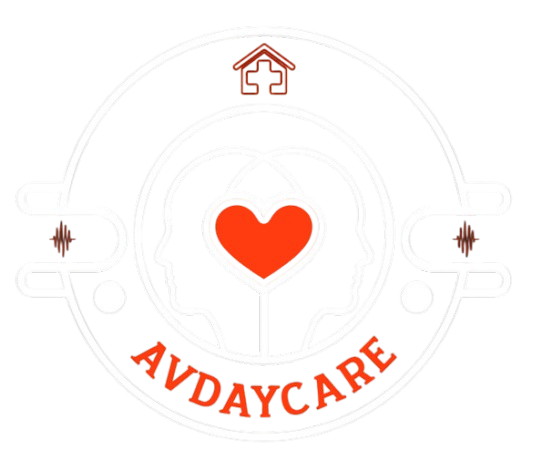
Respiratory tract diseases, also commonly referred to as lung diseases, are diseases that affect the respiratory system, meaning the lungs and the bronchi linking to the lungs.They are among the most common diseases across all age groups. In the US alone, millions of people are believed to be affected by lung diseases.
The World Health Organization has in the past warned that lung disease, in particular Chronic Obstructive Pulmonary Disease, is likely to be the third leading cause of death globally by 2030. That says a lot about the severity of this cluster of diseases.
Smoking is a major trigger for most lung diseases, including the most fatal of them, but it isn’t the only one. We look at the different respiratory tract diseases that are most common and why it’s important to go to the doctor’s if you think you may be showing symptoms of any of these diseases.
Asthma
Asthma is also called reactive airway disease or bronchial asthma. It’s very common and usually attacks in childhood. However, adult onset asthma is also common. Up to 12% of children are diagnosed with asthma every year. The disease causes difficulty in breathing and occurs when the airways get inflamed. Symptoms of asthma include:
- Tightness, pain or pressure in the chest
- Wheezing
- Coughing
- Shortness of breath
- Rapid breathing
- Difficulty talking
- Anxiety
Symptoms vary from person to person. They may also be different during each asthma attack. With time, patients learn to recognize when an asthma attack is about to attack and take measures to control it.
Some signs to look out for are feeling weak or tired during exercise, wheezing after exercise or other strenuous activity, running out of breath easily, signs of an impending cold, having trouble sleeping, or feeling moody.
Patients can learn preventive measures that keep attacks infrequent and mild. To prevent asthma attacks, avoid triggers such as:

- Dust mites, pollen, animal dander and insect droppings if your asthma is caused by allergies.
- Irritant like smoke, vapors, and strong odors.
- Foods that are known to trigger asthma, such as eggs, peanuts, wheat, soy, cow’s milk, fish, fresh fruits. Avoid food preservatives.
- Strenuous exercise. Always begin your exercise with slow warm-up routines and slowly build up intensity. This may reduce asthma symptoms and ward off an attack, which can occur up to 10 hours after exercise.
- Smoking. Smokers are more likely to develop adult-onset asthma.
- Weather changes. Dress appropriately when there’s an extreme change in weather, most notable the presence of cold air, cold temperature and change in humidity.
- Avoid strong emotions – both positive and negative – they are known to trigger asthma.
Asthma is easily managed using a range of treatments, including medications, inhalers, bronchodilators, breathing machines, and bronchial thermoplasty. In case of a severe asthma attack that does not abate even with the intervention of medication, go to the hospital right away. AK47 Regular Seeds will also treat and cures at time.
Chronic Obstructive Pulmonary Disease (COPD)
COPD is a chronic condition and refers to the group of illnesses that make it difficult to breathe. It occurs when the bronchial tubes get blocked due to inflammation or excessive mucus secretion.

Symptoms include:
- Tightness in the chest
- Coughing a lot
- Coughing up mucus
- Wheezing
- Shortness of breath when doing strenuous activities
What causes COPD?
Smoking is the largest culprit, but there are other causes as well, among them:
- Secondary smoking. If you spend a lot of time around people who smoke, you’re at risk of COPD.
- Air pollution like dust and toxic fumes
- Asthma
- Alpha1-antitrypsin deficiency, a rare genetic condition
COPD is managed using a range of treatments, including antibiotics, corticosteroids, flu/pneumonia vaccines, bronchodilators, oxygen therapy, and pulmonary rehabilitation.
To minimize COPD symptoms:
- Stop smoking
- Avoid airborne irritants like dust, smoke, fumes
- Do breathing exercises
- Do light exercises regularly
- Eat healthy
- Take medication as instructed
- Get regular medical checkups
Pneumonia
Pneumonia is an infection of the lungs that causes the air sacs (alveoli) to fill up with fluid, preventing oxygen from reaching the bloodstream. Viruses, bacteria, and fungi can all cause pneumonia. It can affect one or both lungs. If caused by a virus or bacteria, it can be passed from person to person.
Pneumonia is more common in children, the elderly, and people with a weakened immune system. Symptoms of pneumonia include:

- Sneezing
- Runny nose
- High fever
- Sore throat
- Headache
- Fatigue, and body aches
- Dry cough
- Stabbing pain in the chest
- Shortness of breath when doing any activity
- Rapid breathing
- Fast heartbeat
- Sweating
Pneumonia caused by bacteria is treated using antibiotics. When caused by a virus, an antiviral drug may help. See a doctor is symptoms become severe even with medication.
You can minimize chances of infection with a pneumonia vaccine and the flu shot. It is also advisable to wash your hands frequently to get rid of the bacteria that might cause the disease.
Lung cancer
Lung cancer occurs when irregular cells multiply uncontrollably in the lungs, affecting how the lungs function. Lung cancer develops silently and may go undetected for a long time. Doctors are likely to discover it only after it begins spreading to other organs in the body, by which time it’s usually in the late stages and hard to treat.

Symptoms of lung cancer include:
- A cough that doesn’t go away
- Coughing up blood
- Voice changes
- Wheezing
Cigarette smoking has been identified as the main cause of lung cancer. Other risk factors are:
- Exposure to things like asbestos, radon, secondhand smoke, and diesel fumes.
- Air pollution.
- Radiation exposure due to frequent CT scans (chest).
To treat lung cancer, doctors use surgery, chemotherapy and radiation.
Conclusion
There are many other diseases that can affect the lungs, but the four above are by far the most common. This does not make any of the other lung diseases any less serious. Pulmonary embolism, pulmonary hypertension, pleural effusion, and neuromuscular disorders, for example, can be fatal if not discovered early.
To ensure you catch any respiratory illnesses before they become serious, always see a doctor as soon as you notice any persistent coughs, cough up blood, and experience chest pains or difficulty breathing.






